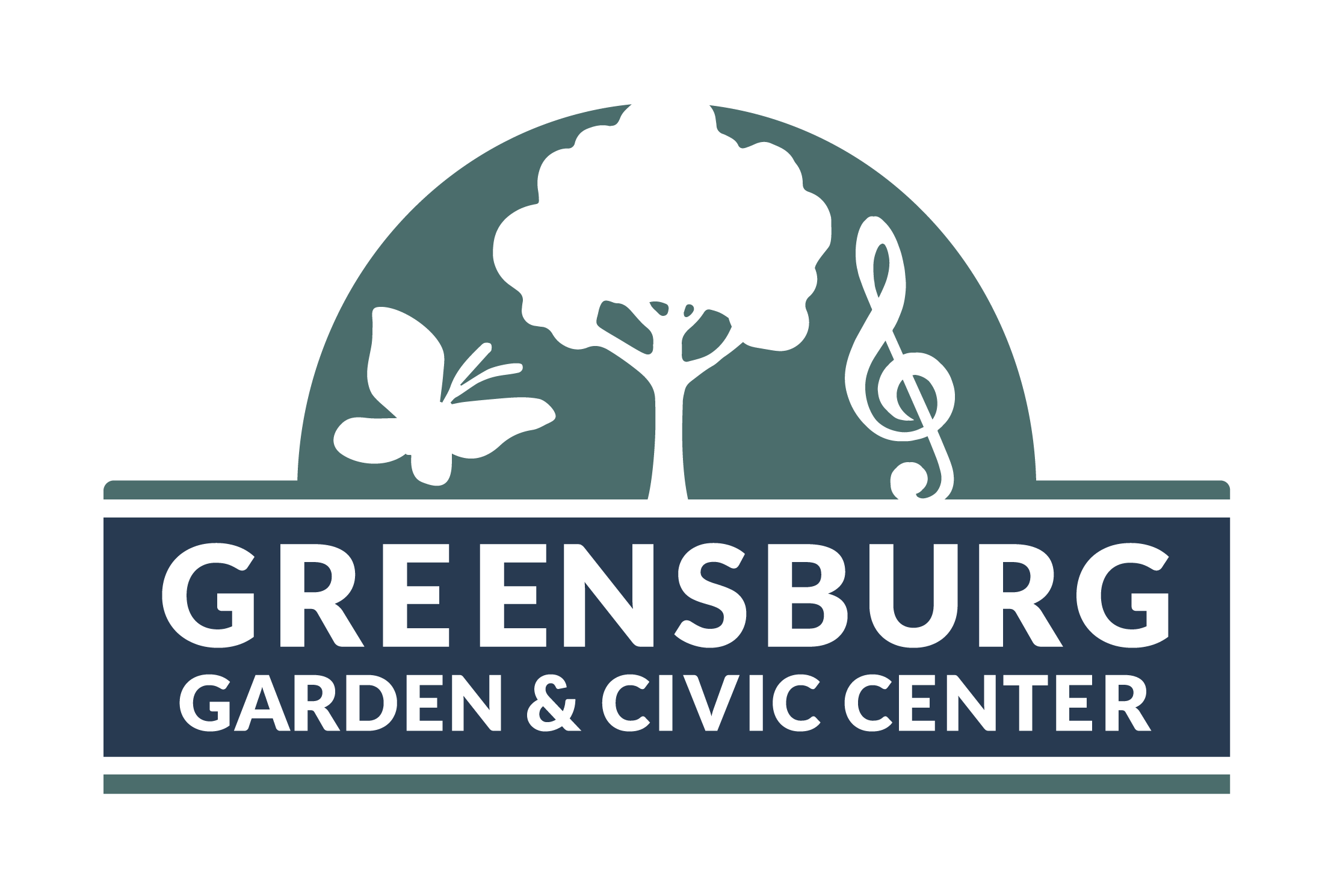
In 1969, Katherine Mabis McKenna, a well-known philanthropist educated in engineering drawing, provided the design and the funds to build the Greensburg Garden & Civic Center. The reason for building the center was twofold: it served as a memorial to her dearly departed son, Mennel, and as a catalyst that would enable her vision of an educational and cultural civic center to come to fruition.
Mrs. McKenna was so inspired by her vision that she donated the building to the city of Greensburg so that the entire Greensburg and Westmoreland County region could utilize it as a premier meeting center and multipurpose facility. Although governed by the Board of Directors of the Greensburg Garden and Civic Center, Inc., a five-member commission was appointed by the city council to oversee the center’s operation.
In 1992, the Board voted to change the focus and the name of the governing body. “The Westmoreland Trust,” a 501(c)3 nonprofit organization, was born. It was formed to manage and operate GG&CC, as well as to serve the community on a much larger scale. It was determined that the most effective method of keeping Mrs. McKenna’s dream alive and providing necessary services to the region would be to expand the focus of the Trust to include taking on a leadership role in the development and enhancement of the cultural life and economic well-being of the Westmoreland County region.
To fulfill Mrs. McKenna’s dreams and successfully achieve this goal, the Trust accepted this challenge by pursuing the possibility of collaborating with other arts and cultural organizations to ensure the continuation of the enhanced cultural life. One of the ways this is achieved is by raising funds to help these organizations with their various needs, such as providing them with affordable office space.
Collaborations with organizations, such as The Laurel Ballet, Greensburg Civic Theatre, Westmoreland Symphony, River City Brass Band, and the Apple Hill Playhouse, have benefited the community. While some of these organizations no longer exist, their impact on the cultural landscape of the region remains. These partnerships brought art and culture to the area, fostering a unique community spirit and a source of regional pride.
The Trust has created and maintained many successful partnerships with city, county, state, and federal governmental agencies, foundations, corporations, and individuals from across the region.
In January 2005, The Westmoreland Trust was renamed “Westmoreland Cultural Trust” to better identify its true mission and purpose: taking on a leadership role in the development and enhancement of the cultural life of the Westmoreland County region.
Mrs. McKenna was so inspired by her vision, that she donated the building to the City of Greensburg so that the entire Greensburg and Westmoreland County region could utilize the building as a premier meeting center and multipurpose facility. Although governed by the Board of Directors of the Greensburg Garden and Civic Center, Inc., a five-member commission was appointed by the city council to oversee the center’s operation.
In 1992, the Board voted to change the focus, and the name, of the governing body. “The Westmoreland Trust”, a 501 (c)(3) nonprofit organization, was born. It was formed to manage and operate GG&CC, as well as serve the community on a much larger scale. It was determined that the most effective method of keeping Mrs. McKenna’s dream alive and providing necessary services to the region would be to expand the focus of the Trust to include taking on a leadership role in the development and enhancement of the cultural life and economic well being of the Westmoreland County region.




